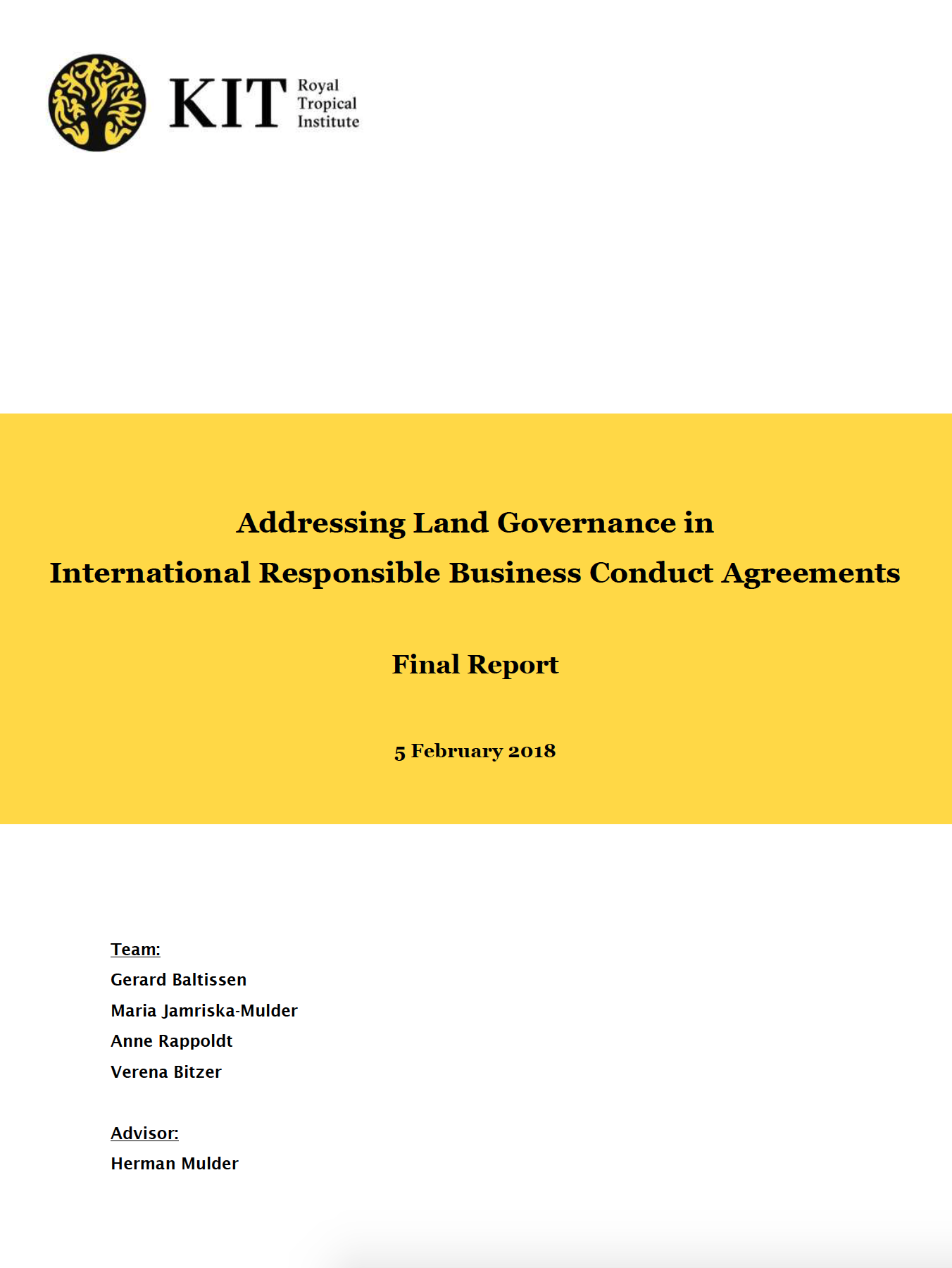Addressing Land Governance in International Responsible Business Conduct Agreements
The study was commissioned to the KIT Royal Tropical Institute in July 2017 by the Land Dialogue, with financial support from the Dutch Government. The objective is to provide insight and guidance into the relevance of land governance as a possible priority theme t o be considered in the process of the International Responsible Business Conduct (IRBC) Agreements.




